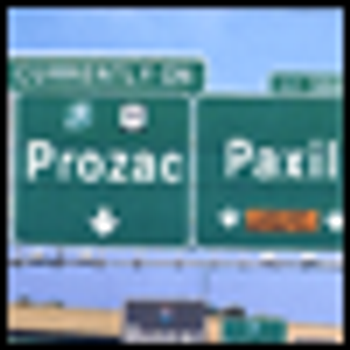
Appetite regulation is made up of complex interlocking, incentive-driven motivational hormonal and neuronal circuitries . . . that can be pulled in many directions, especially where food is cheap and readily available.

Appetite regulation is made up of complex interlocking, incentive-driven motivational hormonal and neuronal circuitries . . . that can be pulled in many directions, especially where food is cheap and readily available.

The FDA’s new rule on “expanded access programs” would allow pharmaceutical companies to give seriously ill patients broader access to investigational drugs outside of clinical trials. A limited number of expanded access programs were created in the past under sketchy FDA rules; the 2 new allied rules-one on the conditions drug companies must meet to create a program, the other on how they can charge for the drugs-ostensibly give pharma a wider berth. Moreover, psychotropic drugs can be provided under the clarified policy.

Surveys show that approximately 60% of the general population has gambled within the past 12 months.1 The majority of people who gamble do so socially and do not incur lasting adverse consequences or harm. Beyond this, approximately 1% to 2% of the population currently meets criteria for pathological gambling.2 This prevalence is similar to that of schizophrenia and bipolar disorder, yet pathological gambling often goes unrecognized by most health care providers.

>I greatly enjoyed Dr Ron Pies’ editorial “What Should Count as a Mental Disorder in DSM-V?”1 in which he encouraged framers of DSM-V to critically examine the boundaries of mental illness and to more carefully distinguish between diseases, disorders, and syndromes. As I have noted elsewhere, current plans to integrate a “spectrum” approach into DSM-V require a careful consideration of these issues that must be defensible to critics of diagnostic expansion within psychiatry.2

The FDA recently approved iloperidone (Fanapt, Vanda Pharmaceuticals) for the treatment of schizophrenia, reversing a July 2008 determination that the New Drug Application (NDA) was “not approvable.” An FDA spokesperson explained in an interview in Forbes (May 8), “Vanda provided the FDA with additional data and arguments that led us to reinterpret results of several of their studies.”

Strategies for Recognizing Schizophrenia and Treating to Remission

Although the onset of psychotic symptoms before the age of 13 years is exceedingly rare, the incidence of schizophrenia rises sharply after the onset of puberty.1 Only 1% of the population has schizophrenia and 30% of these patients experience an onset of psychotic symptoms by age 18 years.2-8 The period that precedes the onset of frank psychotic symptoms (ie, the prodromal phase) has not been well characterized in early-onset schizophrenia-spectrum disorders (EOSS), but retrospective reports have shown that symptoms include high levels of depression and anxiety, emerging cognitive and social deficits, unusual thought content, and (not infrequently) school failure.

A Different Approach to Treatment Resistance

This statistic is as familiar as it is startling. According to the National Comorbidity Survey-Replication (NCS-R), the peak age of onset for any disease involving mental health is 14 years. True for bipolar disorder. True for anxiety. True for schizophrenia and substance abuse and eating disorders. The data suggest that most mental health challenges emerge during adolescence. If true, this brings to mind an important developmental question:

Since the inclusion of the borderline personality disorder (BPD) diagnosis in DSM, there have been multiple efforts to recast the disorder as part of an Axis I illness category. While the initial focus was on the schizophrenia spectrum, more recent authors have attempted to link BPD to mood disorders.

When the solution to a clinical or scientific puzzle eludes us for more than a century, as with schizophrenia, we need new methods to examine the pathology. If we want to make an impact on the disease we must shift research paradigms and focus on the early detection, early intervention, and new avenues of treatment that address different symptoms of schizophrenia.

Rages are part of a syndrome of severe mood dysregulation, which is defined by markedly increased and frequent reactivity to negative emotional stimuli.

New mental health coverage mandates going into effect in 2010 will force corporations and their insurance companies to adopt new utilization management protocols that could put the squeeze on psychiatrists.

PTSD filled a nosological gap by providing a way to characterize the long-lasting effects of trauma exposure.1 This led to a plethora of previously lacking scientific observations. Now the existence of PTSD is being called into question because some of the original assumptions that helped make the case for it have proved to be incorrect.2-4 However, it is possible to update some of the flawed assumptions of PTSD without rescinding the diagnosis. There is no reason to throw the baby out with the bathwater.

I have the highest respect and affection for Will Carpenter, MD, who wrote a recent response ("Criticism vs Fact: A Response To A Warning Sign on the Road to DSM-V by Allen Frances, MD," Psychiatric Times, July 7, 2009) to my earlier commentary, but we do differ sharply on the following points.

Through high-profile media cases and in film, the American public has had glimpses into the psychological phenomenon and criminal behavior known as stalking. But do these glimpses truly represent the types of stalking offenses that are commonly perpetrated? Academicians and public policy makers have only begun to focus attention on stalkingin the past 10 to 15 years. As is often the case, the dissemination of information relevant to treating clinicians often lags behind by many years. Thus, many mental health professionals have not been adequately trained to recognize stalking behavior and to treat those who perpetrate it.

Findings of a recent large population survey suggest that 1 in 3 adults in this country (approximately 72 million people) uses 1 or more complementary and alternative medicine (CAM) modalities during any given year.1 Many CAMs are widely regarded as safe on the basis of their established uses in traditional systems of medicine over centuries or longer and their current widespread use in the United States and other Western countries. Unfortunately, there is limited reliable information on potential risks associated with the majority of these approaches.

Allen Frances, an old friend, writes critically about the DSM-V project. I will address some key issues where his criticisms do not relate to reality as experienced from within the process. I chair the Psychoses Work Group and am a member of the DSM-V Task Force.

Alarmed by the rising suicide rate among soldiers returning from Iraq and Afghanistan and “wanting to help,” Matthew “Matt” Houseal, MD, a psychiatrist with the Texas Panhandle Mental Health Mental Retardation Center (TPMHMR), reenlisted as an Army Reservist and volunteered to serve in Iraq.

If I closed my eyes, it would have been easy to imagine that I was visiting a peaceful city park. The sounds of birdsong and children’s laughter rang in the air, and the odor of freshly cut grass filled my nostrils. But the sweet smells and soothing sounds belied the horror of the place where I actually stood-inside the wrought iron gates of Auschwitz-Birkenau, the Holocaust’s most infamous concentration camp. Today the camp is a museum, and there is an eerie dissonance between the tranquility of its sprawling grounds and the mass murders that were carried out here almost 70 years ago. Like many visitors to Auschwitz, I experienced powerful emotions-a mixture of revulsion, anger, and a deep empathy for the millions of souls who suffered and perished there. I also felt a discomfiting sense of doubt about the goodness of humanity, including my own.

Transcranial magnetic stimulation produced improvements in key areas of cognition and in short-term verbal memory in patients with major depressive disorder, and no adverse cognitive effects were shown. The results of this research were presented by Mark Demitrack, MD, vice president and chief medical officer of Neuronetics, Inc, and colleagues at the annual meeting of the American Psychiatric Association in May.

The epidemiology and management of psychiatric disability have gained increased attention for a variety of reasons in the past 3 decades. There are issues of empowerment, advocacy, and reduction of stigma. There are also concerns about cost containment as well as reliability, validity, and efficacy of the determination process.

In response to the resolution made in 2008 by the US Congress that proclaimed May to be borderline personality disorder (BPD) awareness month, the American Psychiatric Association (APA) decided to make BPD a key track of this year’s meeting. Among the several excellent presentations on BPD was Dr John G. Gunderson’s lecture on the ontogeny of the disorder. Having spent the past 30+ years studying BPD, both as a researcher and a clinician, Dr Gunderson of McLean Hospital of Harvard Medical School is an expert on the history of BPD.

In “Changes in Psychiatric Diagnosis” (Psychiatric Times, November 2008, page 14) Michael First relates the sad fact that the reorganization of DSM is still without formal guidelines and continues to be subject to the vicissitudes of groupthink and vocal constituencies. He relates that he and Allen Frances envisioned the application of biologically based diagnostic criteria when summarizing the work of DSM-IV, but complains that no criteria are forthcoming as yet.

The foreword to the Textbook of Violence Assessment and Management promptly reminds readers that the mental health system has been invested in the prediction and prevention of violence since its inception. In a field dedicated to promoting wellness via the management of cognition, emotion, and behavior, violent thoughts, feelings, and actions are of primary concern. When psychiatric illness or psychological distress manifests as violence, the costs in terms of human suffering are extreme, wreaking havoc in the lives of patients, clinicians, and society at large-often with irreversible consequences.